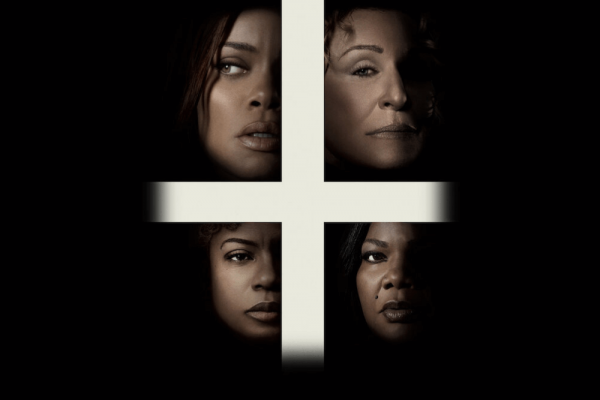“For we wrestle not against flesh and blood, but against principalities, against powers, against the rulers of the darkness of this world, against spiritual wickedness in high places.” -Ephesians 6:12 KJV
Growing up in the church, I became quite familiar with this scripture. It was repeated often in the nondenominational apostolic church that my family attended for many years of my childhood. It was at that church that we spent a lot of time discussing spiritual warfare. We learned how to bind up and rebuke anything that was not of God. We learned how to pray prayers that could break off chains. (At that time, the chains were often given the names of homosexuality and depression, an aspect that I lament today). We learned the power of anointing, both to ordain a position and to summon protection. We had to be on high alert because at any time the devil could strike. And according to my childhood church, we were most vulnerable to attack when our faith turned lukewarm: When doubt crept in, so could the devil.
Lee Daniels’ The Deliverance, streaming on Netflix August 30, has a different take on what makes us vulnerable to evil. This new addition to the exorcism film genre centers a Black family in an apostolic Black church context, not unlike the one I grew up in. But in the film, it is not just our spiritual lives that matter but their material circumstances: racism, sexism, and other systems of oppression. They wrestle with not just the spirits that come in the night but spirits that manifest in the day through the systems and institutions that we regularly interact with, systems — like hospitals and the police — that should support us and protect us.
Loosely inspired by the experiences of Latoya Ammons in Gary, Ind., The Deliverance follows single mother Ebony Jackson as she battles demons, her past, and systems entrenched with racism and sexism — all to save her family. However, the real battle takes place within herself as she confronts her trauma and the message that haunts her most: Nobody loves you. She cannot save her children until she, with the help of God and an apostle, can first save herself.
When Ebony (Andra Day), moves into a new house with her mother Alberta (Glenn Close), son Nate (Caleb McLaughlin), daughter Shante (Demi Singleton), and youngest son Dre (Anthony B. Jenkins), strange occurrences begin. Her house smells like death, and her children begin to act out of character. Her son Dre starts talking in a foreign language to something that she cannot see.
It doesn’t take Ebony long to realize that something is wrong. She shares this realization with Cynthia (Mo’Nique), a Department of Child Services officer assigned to her family, saying, “This house is making them sick. I can feel it. I’m hearing things. Whatever it is, it’s affecting my kids.”
While the house has a demon that is possessing her children, the spiritual circumstances are shaped by the material circumstances. The demon can thrive because racism, sexism, and trauma have robbed Ebony of her strength and her sense of self. We see this on display when she seeks help for the strange actions of her children, and no one comes to her aid. The hospital fails her. Cynthia fails her. Even her own mother, who has also witnessed these strange occurrences, fails to support her.
Ebony confronts her mother, who is white, after their visit to the hospital, saying, “Ma, did you even hear yourself in there? ‘Oh, I’m sorry, doctor. My little Black daughter must be confused.’” She tells her mother that she is just like the other white women who love Black culture and Black people except when it’s time to truly show up and support them.
Recently, we saw this dynamic play out in the life and death of Sonya Massey. Like Ebony, Massey turned to an institution that should have protected and supported her: the police. She called them concerned about a potential threat in the neighborhood, not realizing that the real threat were the police officers that she had invited into her home. When she goes to take the hot water off the stove, one of the officers makes a comment suggesting he’s fearful she’s going to throw the water on him. When she responds, “I rebuke you in the name of Jesus,” the officer shoots and kills her. Massey realized, perhaps too late, that it is not just the invisible spirits of the night that should concern us but the spirits that manifest in the day. It’s spirits that manifest in a policing system that continues to see Blackness as a threat. It’s spirits that show up as medical racism that often costs Black mothers and babies their lives. It’s spirits that show up in systems that often spend more time separating families than protecting children.
Fortunately for Ebony, someone does arrive to offer protection. Apostle Bernice James (Aunjanue Ellis-Taylor), who also describes herself as an evangelist and a prophet, really sees Ebony. James is the only person who listens to her, the only person willing to walk alongside Ebony in her battle against both the spirits that come in the night and the spirits that manifest in the day.
“I don’t do no exorcisms,” James says to Ebony. “I don’t need an intercessor. Jesus Christ is my intercessor. If you act in the power and authority of Jesus Christ, you can touch a body, and the demon will run.”
Minor spoilers follow.
While The Deliverance can be heavy-handed in its religious dialogue and delivery — in what appears to be an attempt to move the audience to personal salvation, the film introduces audiences to a unique type of spiritual warfare: Before James and Ebony can exorcize the demon from Ebony's home, they must first address the personal traumas and external societal forces that have made Ebony vulnerable. Ebony shares with James that she was sexually abused by her mother’s boyfriend at a young age. When she asked God to make it stop, nothing happened. Since then, she has felt unheard and unloved, and has been coping in ways that aren’t always healthy, at times putting her children at risk. These feelings were reinforced when the systems and institutions that should have helped her save her children, dismissed and blamed her.
A poignant interaction with James reveals what’s been missing in Ebony’s fight against the demons, and by extension, her fight for dignity within unjust circumstances. The exorcism is about more than just freeing the family from spiritual attacks; it’s about transforming Ebony’s understanding of herself and God. Responding to Ebony’s story, James says, “Ebony, I think that you think that it’s transactional. It’s not transactional. You’re not just doing this to keep your son away from some demon. You’ve got to know that you’re loved, Ebony. You’re loved, Ebony. God loves you.”
To save her family, Ebony must address the messages that she has internalized about herself and about God. Ebony must know that she is loved.
Love is the solution for Ebony, and it is one way that we can address the spirits that manifest in the day and in the systems and institutions that we regularly interact with. Loving God, loving our neighbors, and loving ourselves often looks like speaking out in the face of racism, sexism, and other forces of oppression. It looks like creating systems of mutual aid and support that allow us to walk alongside people, showing up for others like James shows up for Ebony. It looks like voting for policies that reflect the humanity and divinity in all of us. It’s hearing the unheard and seeing the unseen. The Deliverance invites us into Ebony’s spiritual battle against demons — demons both literal and figurative, personal and structural. That’s a battle that none of us can fight on our own.
Got something to say about what you're reading? We value your feedback!







